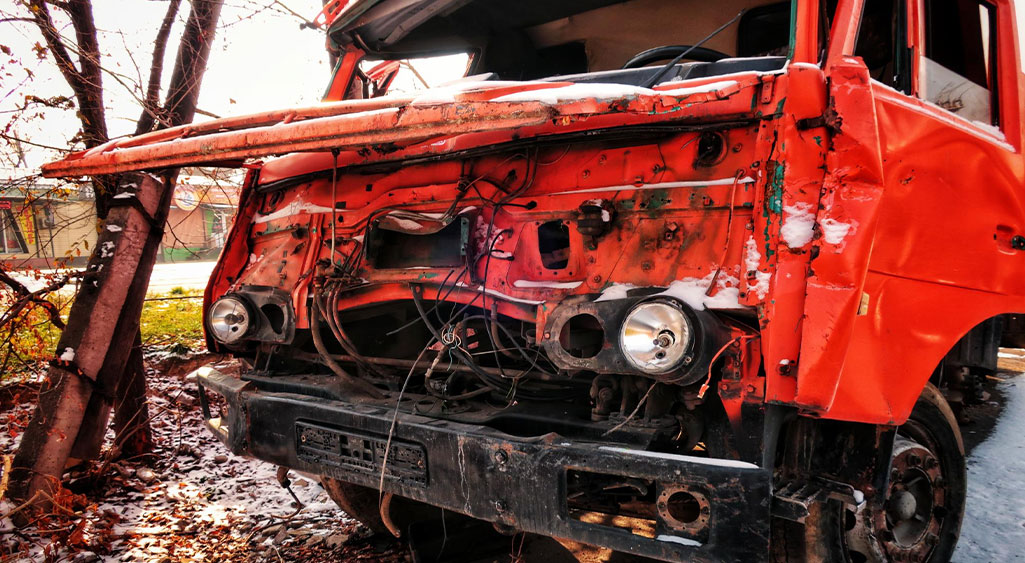
 Request FREE consultation - 1866-758-4529
Request FREE consultation - 1866-758-4529 
Highways are jammed in every major city across the United States because of a truck accident involving a jackknifed big rig. The tractor-trailer will frequently roll over and spill diesel fuel on the highway.
There is a point of no return when a trailer travels at a speed greater than the tractor. It is this scenario that allows the jackknife accident to occur.
Another common situation is a jackknife accident where the trailer to the semi-truck slides sideways down the highway, often impacting vehicles coming in the other direction. This usually results in devastating damages and catastrophic injuries
when the tractor crosses into oncoming traffic.
Jackknife accidents also can be extremely dangerous for the truck drivers themselves because the driver can no longer control the truck after it reaches the point of no return.
Houston has numerous jackknife accidents in any given month throughout the year. Most of these occur on major highways, resulting in significant delays to commuting traffic.
When diesel fuel is spilled on the highway, special crews must be dispatched to clean up the spill before the roadway can be opened to the public. This is a very intense and expensive undertaking that must be done in each instance when fuel is spilled on the roadway.
Diesel fuel and even gasoline spills are extremely slick when an unsuspecting motorist hits the patch of spilled fuel. If you add rain or moisture to the mix it becomes even slicker and results in accidents similar to that which happens when a motorist hits a patch of ice unexpectedly.
One of the single biggest factors for the cause of a semi-truck jackknife incident is the application of the brakes on the tractor, which causes the tractor to slow down while the trailer does not. Add some steering input and conditions are ripe for a jackknife.
It is no coincidence that a jackknife truck wreck is most likely to occur when a trailer is unloaded or lightly loaded. The reason is that the weight of the trailer allows the trailer to brake more effectively. Studies have shown that unloaded big rigs are much more likely to jackknife than fully loaded tractor-trailers.
Proper braking by the professional truck driver is an essential component to avoiding a jackknife crash. Sometimes, there is just no alternative to a heartbreaking by a professional truck driver. Safety is accomplished by allowing an assured clear distance between other vehicles on the highway when possible.
Driver experience can also play a big part in preventing a jackknife from becoming a reality. The more experienced the driver, the less likely the driver is to apply the brakes and jack-type their truck improperly.
Once a commercial truck driver reaches the point of “no return” in a jackknife accident they are essentially along for the ride no matter what they do with the braking or the steering of the semi-truck.
Many truck drivers have been seriously injured and even killed because of an improper braking that led to a jackknife.
Call (281) 893-0760 or click here if you have been in a serious truck wreck.
Contact the experienced trucking accident attorney for help after a big rig injury accident.
(281) 893-0760
Related Resources:
Why A Tractor Trailer Jackknifes
The main cause of a jackknife truck accident
Conroe tractor trailer accident in the news June 18, 2014
Falling Loads off Tractor Trailers